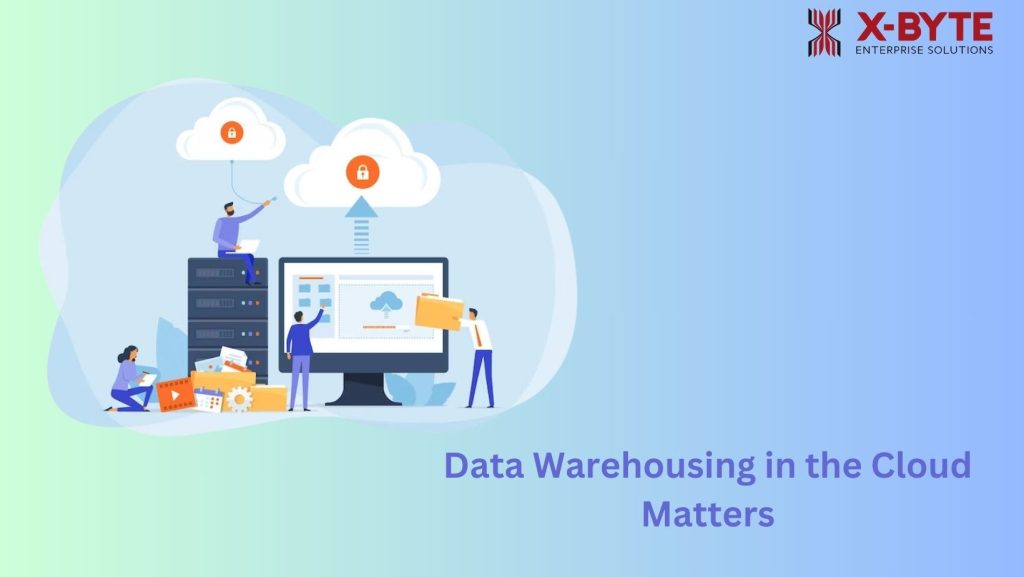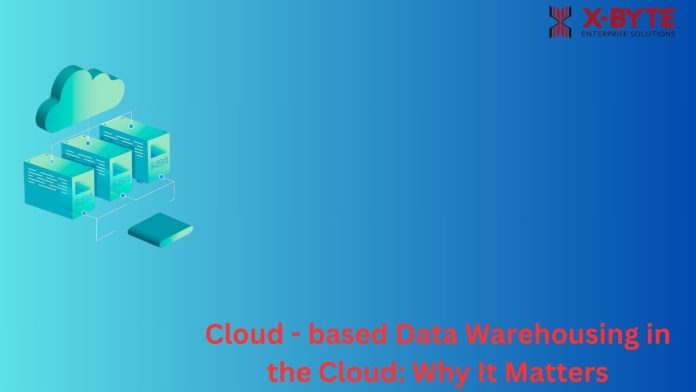In today’s data-driven world, organizations of all sizes are constantly seeking innovative ways to streamline their data management and analysis processes. One such innovation that has taken the business world by storm is “Data Warehousing in the Cloud.” This transformational approach to data management has become increasingly vital, offering a wide range of benefits and opportunities for businesses.
Understanding Data Warehousing in the Cloud
Before we dive into the significance of data warehousing in the cloud, let’s start by understanding what it is and how it works.
What is Data Warehousing in the Cloud?
Data warehousing in the cloud is an innovative data management solution that leverages cloud computing technology to store, manage, and analyze data. It offers a centralized repository for structured and unstructured data, accessible from anywhere with an internet connection. This approach eliminates the need for on-premises infrastructure, reducing costs and increasing flexibility.
How Does It Work?
In a cloud-based data warehousing system, data is stored in remote servers provided by cloud service providers. These providers offer various tools and services for data integration, transformation, and analysis. Data can be easily loaded into the warehouse and accessed by authorized users, making it a streamlined and efficient process.
Now that we have a basic understanding of what data warehousing in the cloud entails, let’s explore why it matters.
Why Data Warehousing in the Cloud Matters?

Data warehousing in the cloud has gained prominence due to several compelling reasons. Let’s delve into the key factors that make it a significant game-changer for businesses.
1. Cost-Efficiency
One of the primary motivations for businesses to adopt cloud-based data warehousing is cost savings. Traditional data warehousing requires significant capital investment in hardware and software, along with ongoing maintenance expenses. In contrast, cloud data warehousing operates on a pay-as-you-go model, which means you only pay for the resources and storage you actually use. This cost-efficiency can be a game-changer for small and large enterprises alike.
2. Scalability
Cloud-based data warehousing solutions offer unmatched scalability. Whether your data volume increases or decreases, you can effortlessly adjust your storage and computing resources to match your needs. This scalability allows businesses to grow and adapt without the limitations of physical infrastructure.
3. Accessibility
Accessibility is a crucial aspect of cloud-based data warehousing. With data stored in the cloud, authorized users can access it from anywhere with an internet connection. This accessibility promotes collaboration, facilitates remote work, and enables data-driven decision-making from diverse locations.
4. Speed and Performance
Cloud-based data warehousing systems are engineered for speed and performance. Data retrieval and query processing are significantly faster due to the distributed computing resources in the cloud. This means that your data is processed more swiftly, providing real-time insights and analytics.
5. Security and Compliance
Data security is a top priority for businesses, and cloud-based data warehousing services are designed with security in mind. Providers offer robust encryption, access controls, and compliance certifications to ensure data security and compliance with regulations such as HIPAA and GDPR. This high level of security and compliance is reassuring for businesses dealing with sensitive data.
6. Data Integration and Management
Efficient data integration and management are crucial for the success of any data warehousing solution. Cloud-based data warehousing services often come equipped with Extract, Transform, Load (ETL) tools that streamline the process of collecting data from various sources, transforming it as needed, and loading it into the data warehouse. This ensures that data is accurate, up-to-date, and ready for analysis.
Real-World Applications
To understand the practical significance of cloud-based data warehousing, let’s explore some real-world applications:
Retail:
Retail businesses use cloud data warehousing to analyze customer data, sales trends, and inventory management. Real-time analytics enable them to make dynamic pricing decisions and optimize supply chain operations.
Healthcare:
In the healthcare industry, cloud-based data warehousing plays a crucial role in securely storing and analyzing patient records, medical images, and research data. It facilitates data sharing among healthcare providers while maintaining compliance with strict privacy regulations.
Finance:
Financial institutions rely on cloud data warehousing for fraud detection, risk analysis, and portfolio management. The speed and scalability of cloud-based solutions are essential for handling vast financial datasets.
E-commerce:
E-commerce platforms harness cloud-based data warehousing to analyze customer behavior, predict purchase trends, and offer personalized product recommendations, enhancing the shopping experience.
Challenges and Solutions
While the advantages of cloud-based data warehousing are evident, it’s essential to acknowledge the challenges that organizations may encounter during the transition:
Data Migration: Moving data to the cloud can be complex, but careful planning and data migration strategies can simplify the process.
Security Concerns: Security is a top concern for cloud data warehousing. However, cloud providers offer encryption, access controls, and compliance certifications to address these concerns.
Integration: Integrating cloud data warehousing with existing systems and tools can be challenging. However, many cloud solutions provide connectors and APIs to streamline the integration process.
Future Trends
The landscape of data warehousing in the cloud is continually evolving. To stay ahead of the curve, consider these future trends:
Enhanced Automation: Automation will become more prevalent in data warehousing processes, reducing manual intervention and improving efficiency.
Advanced Data Analytics: Cloud-based data warehousing will support more advanced data analytics, enabling businesses to gain deeper insights from their data.
AI and Machine Learning Integration: Cloud data warehousing will integrate more seamlessly with AI and machine learning technologies, opening new possibilities for data analysis and prediction.
Conclusion
In conclusion, data warehousing in the cloud is not just a trend; it’s a fundamental shift in how businesses manage and analyze their data. Its cost-efficiency, scalability, accessibility, speed, and security make it a vital asset for modern organizations. Whether you’re a small startup looking to streamline data management or a large enterprise striving to stay competitive, embracing cloud-based data warehousing can be a game-changer. It’s a transformation that matters for businesses across the spectrum.
To learn more about this innovative approach to data management, explore our detailed FAQ section below.
FAQs
1. What is data warehousing in the cloud?
Data warehousing in the cloud is a data management solution that uses cloud technology to store, manage, and analyze data, offering accessibility, scalability, and cost-efficiency.
2. Why is cost-efficiency a significant advantage of cloud data warehousing?
Cloud data warehousing follows a pay-as-you-go model, eliminating the need for large capital investments in hardware and software.
3. How does cloud-based data warehousing promote accessibility?
Data can be accessed from anywhere with an internet connection, enabling remote work and collaboration among teams.
4. Why is security and compliance a priority for cloud data warehousing?
Cloud providers offer encryption, access controls, and compliance certifications to ensure data security and compliance with regulations.
5. How can cloud-based data warehousing benefit different industries?
Cloud data warehousing has diverse applications, from optimizing retail operations to securely storing








